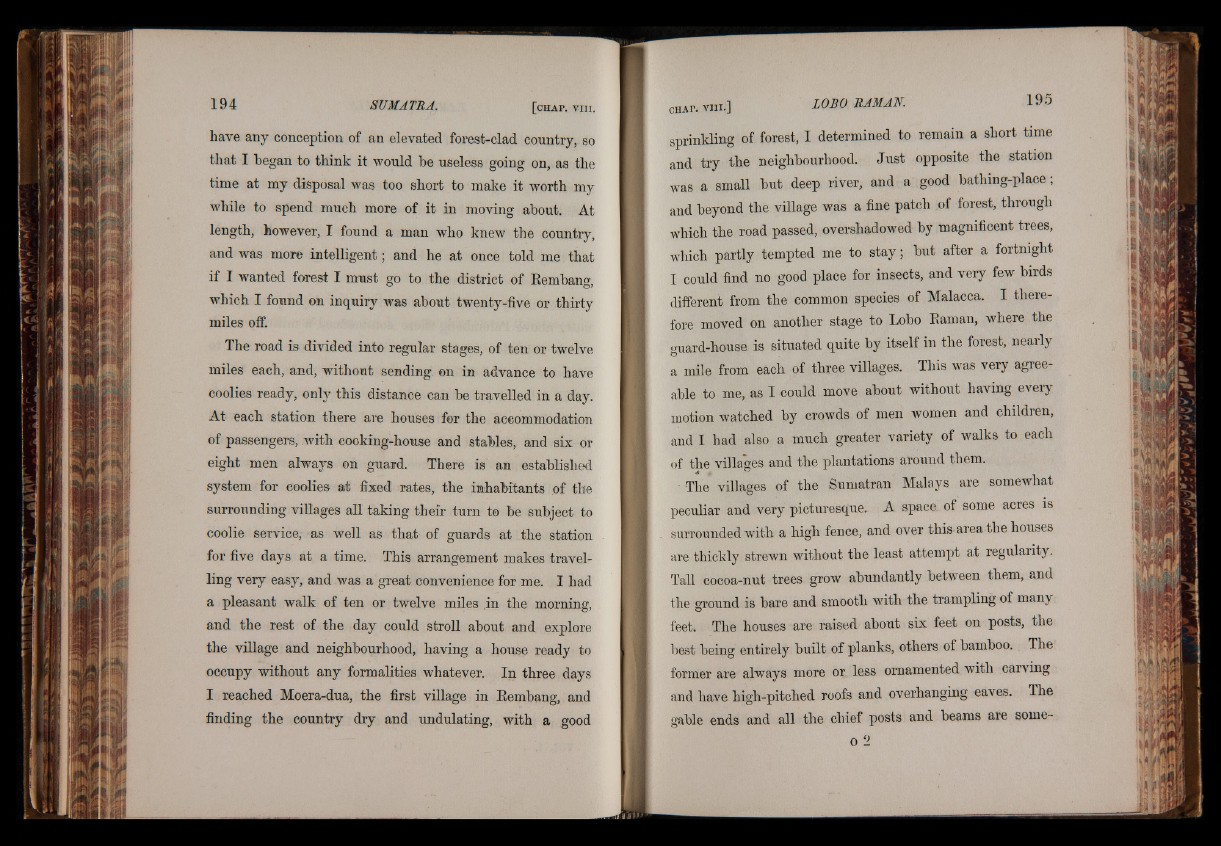
have any conception of an elevated forest-clad country, so
that I began to think it would be useless going on, as the
time at my disposal was too short to make it worth my
while to spend mueh more of it in moving about. At
length, however, I found a man who knew the country,
and was more intelligent; and he at once told me that
if I wanted forest I must go to the district of Eemban»o*
which I found on inquiry was about twenty-five or thirty
miles off.
The road is divided into regular stages, of ten or twelve
miles each, and, without sending on in advance to have
coolies ready, only this distance can be travelled in a day.
At each station there are houses for the accommodation
of passengers, with cooking-house and stables, and six or
eight men always on guard. There is an established
system for coolies at fixed rates, the inhabitants of the
surrounding villages all taking their turn to be subject to
coolie service, as well as that of guards at the station
for five days at a time. This arrangement makes travelling
very easy, and was a great convenience for me. I had
a pleasant walk of ten or twelve miles .in the morning,
and the rest of the day could stroll about and explore
the village and neighbourhood, having a house ready to
occupy without any formalities whatever. In three days
I reached Moera-dua, the first village in Eembang, and
finding the country dry and undulating, with a good
sprinkling of forest, I determined to remain a short time
and try the neighbourhood. Just opposite the station
was a small but deep river, and a good bathing-place;
and beyond the village was a fine patch of forest, through
which the road passed, overshadowed by magnificent trees,
which partly tempted me to stay; but after a fortnight
I could find no good place for insects, and very few birds
different from the common species of Malacca. I therefore
moved on another stage to Lobo Eaman, where the
ouard-house is situated quite by itself O in the forest, nearly
a mile from each of three villages. This was very agreeable
to me, as I could move about without having eveiy
motion watched by crowds of men women and children,
and I had also a much greater variety of walks to each
of the villages and the plantations around them.
The villages of the Sumatran Malays are somewhat
peculiar and very picturesque. A space of some acres is
surrounded with a high fence, and over this area the houses
are thickly strewn without the least attempt at regularity.
Tall cocoa-nut trees grow abundantly between them, and
the ground is bare and smooth with the trampling of many
feet. The houses are raised about six feet on posts, the
best being entirely built of planks, others of bamboo. The
former are always more or less ornamented with carving
and have high-pitched roofs and overhanging eaves. The
sable ends and all the chief posts and beams are some